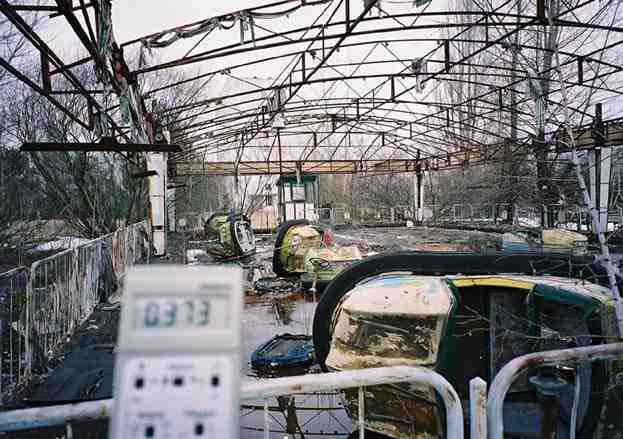A little about the book, and why I picked it up:
It's written by Arkady and Boris Strugatsky, who are brothers. Published in 1972 in USSR. A fairly short novel -- ~150pgs.
This is the novel that inspired Andrei Tarkovsky's "Stalker", which is a film that I found so fascinating. Those that have seen the film generally pick the book up. The film is completely different and the brothers re-wrote a script for the film production, which was done in the 'arthouse' manner, and extremely philosophical.
There is also I believe 3 PC games called 'Stalker', which are based more on the book then the film. Again, a very different take from all aspects (novel, film, game) but contains one similar element: 'stalkers' go into the 'zone' to find artefacts worth a lot of money. The zone has laws that defy the nature of physics, and was created by aliens that left a lot of their rubbish behind without little care or thought. The has lead to a lot of complications: people becoming mutants, plague, jelly swamps, and a room that supposedly grants your ultimate wish.
The dialogue of the book is quite monologist from the main character, 'Red'. This book can be tricky to absorb fully. I'll explain. Maybe I read this book way too fast - it was the same with the other Soviet sf book, 'We'. Things just don't 100% make sense. Are they meant to? Perhaps it's the prose? Dodgy translation? I wasn't able to remember the different characters: "Throaty", "Kirill", "Nanoon; Stalkers/Scientists.. His wife "Guta", "Monkey" his daughter. I remember the key characters. Some just ended up being named-dropped miles on later in the book where they had no real significance though. Russian lit loves having as many characters as possible it seems!
There were a lot of 'stalkers' (people that go into the zone and risk their lives for loot), a lot of experiences that were recited, a lot of dialogue and confrontations with others in this pub. The chapters were very large, and worked in timescale format: scientists talking about the zone, Red coming back after the zone, Red punching people in the book, Red getting caught?, scientists talking about the zone again, and then Red going back for a final trip to cure his daughter (all of these not made clear at all!). The details and the descriptions of places and characters in the book are highly praised elsewhere, and I do not question them (perhaps they were?). I felt like I was reading one of those P K Dick novels that he wrote on speed and it's quite sketchy around certain places to understand. The most annoying thing is that after reading 20 pages or so, you do know what's going on, you do understand. I guess it must be me; others describe it as stark, eerie, brilliant descriptions, and one guy on amazon saying "eerie beauty in the depictions of the devastated, deserted town that exists within the Zone, descriptions which indeed are semi-prophetic in light of the 1986 Chernobyl nuclear power plant disaster" - that alone makes me want to read it again!
To wrap this up, I conclude that a high level of concentration is required to read this, and you'll probably find yourself re-reading bits. I picked the book up and found myself reading 5 pages back at times, not having a clue where I was. However, the book had a certain aura about it that I was really feeling, despite my struggles. It felt very Russian, in a good way. There was only one Russian character, so it's not a pro-Russian anti-capitalist propaganda thing going on either (wouldn't mind if it was by the way).
This novel is a very unique look at what presents itself as the limits of humanity's quest for knowledge. The authors look at events in which mankind is totally unable or not meant to understand? (Strange how this didn't get religious?). A book I will definitely re-read.
Thankfully, this guy over here is in agreement with what I'm saying. Towards the end, yes... You do realise this is more of a philosophical book using a sf device to make a point.


No comments:
Post a Comment